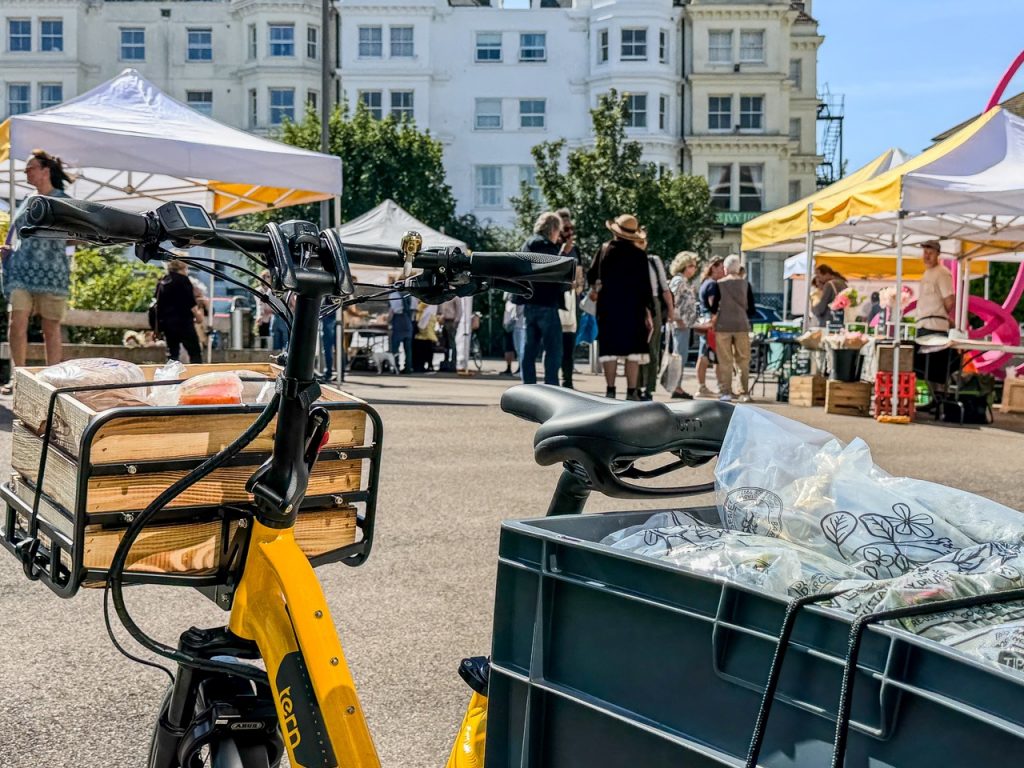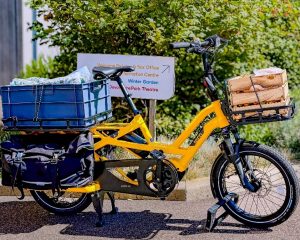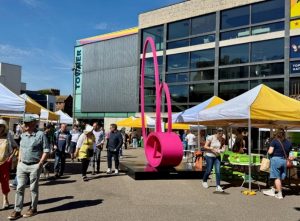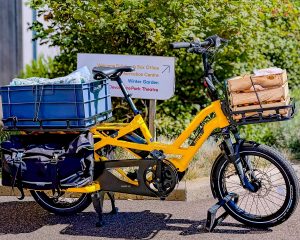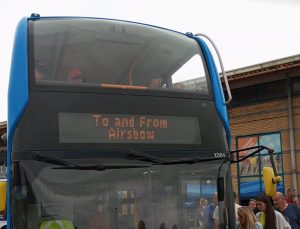A community cargo bike for Eastbourne
By Robert McGowan
After many months of anticipation, we were delighted to receive funding from the Neighbourhood Community Infrastructure Levy (CIL) fund managed by Eastbourne Borough Council to purchase a community cargo bike. Having tested a number of different e-bikes at Get Bikery in Lewes (thanks to Matt Bird and Jamie Lloyd), we decided on a Tern GSD S10.
It felt very stable and simple to ride – equipped with a powerful Bosch electric motor and able to transport plenty in crates attached to the front and rear racks, plus two panniers. With match-funding from EEAN and Eastbourne Food Partnership CICs, we had enough in our budget to order a bright yellow one from elctrc at Brighton Marina.
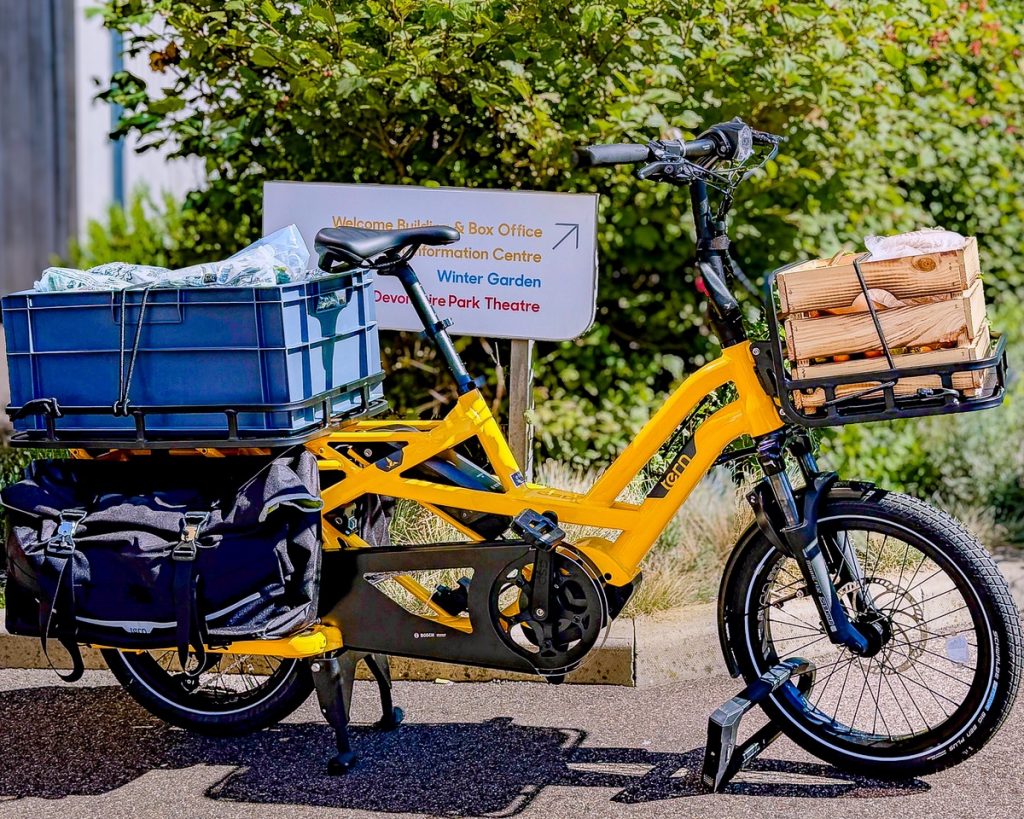
Our new Tern GSD S10 loaded and ready to deliver
Photo by Sam Powell
From Brighton Marina to Eastbourne
I collected the Tern one blustery morning – and thoroughly enjoyed putting it through its paces into a strong headwind along the seafront path (yes, there is a seafront cycle path in Brighton, like almost all British seaside towns). Then inland to Falmer and Lewes. Much of the ride was on dedicated cycle paths, separated from the traffic, which was excellent – and the Tern coped superbly on the hills.
Pausing at The Depot in Lewes, I spoke to Matt of Get Bikery about how they are managing their cargo bikes – and was joined by Councillor Andy Collins and EEAN’s Jill Shacklock. The onward ride to Polegate along the A27 shared cycle path was a joy – thanks to the “Turbo” mode. There was sufficient battery power to sail up Cooper’s Hill in Willingdon village, then negotiate the climb past Ocklynge School into Eastbourne’s Old Town.
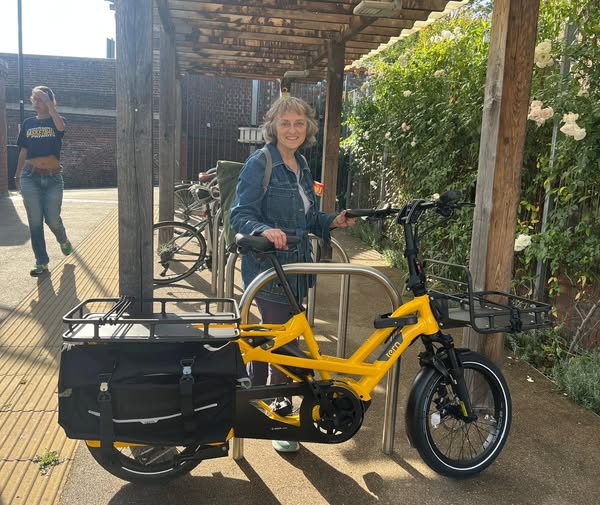
Jill admires the Tern at The Depot, Lewes
Reducing food waste and carbon emissions
One of our priorities for the cargo bike project will be to support the distribution of food from local growers and community gardens and places with surplus food, such as supermarkets and hospitality outlets to food banks, community larders and kitchens. In all, the plan is to help reduce food waste and reduce food insecurity whilst reducing carbon emissions and air pollution in the local transport system.
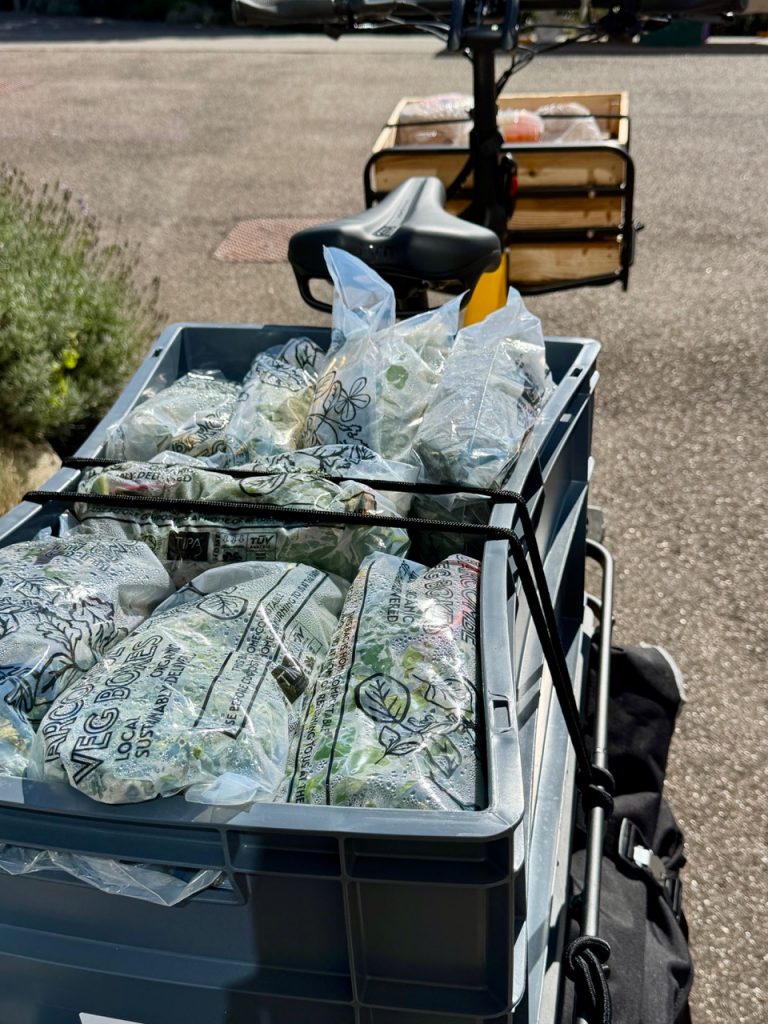
Some of the food donated by generous stallholders
Photo by Sam Powell
From farmer's market to community hub
The Tern’s first task was to transport surplus fruit, vegetables and baked goods from Eastbourne’s new Farmers Market to the Seaside Community Hub – quietly and easily achieved in about 10 minutes. Even with generous food donations from stallholders, a single trip was sufficient. The market takes place on the first Saturday morning of each month in front of Towner Art Gallery, and our cargo bike will be a regular fixture there.
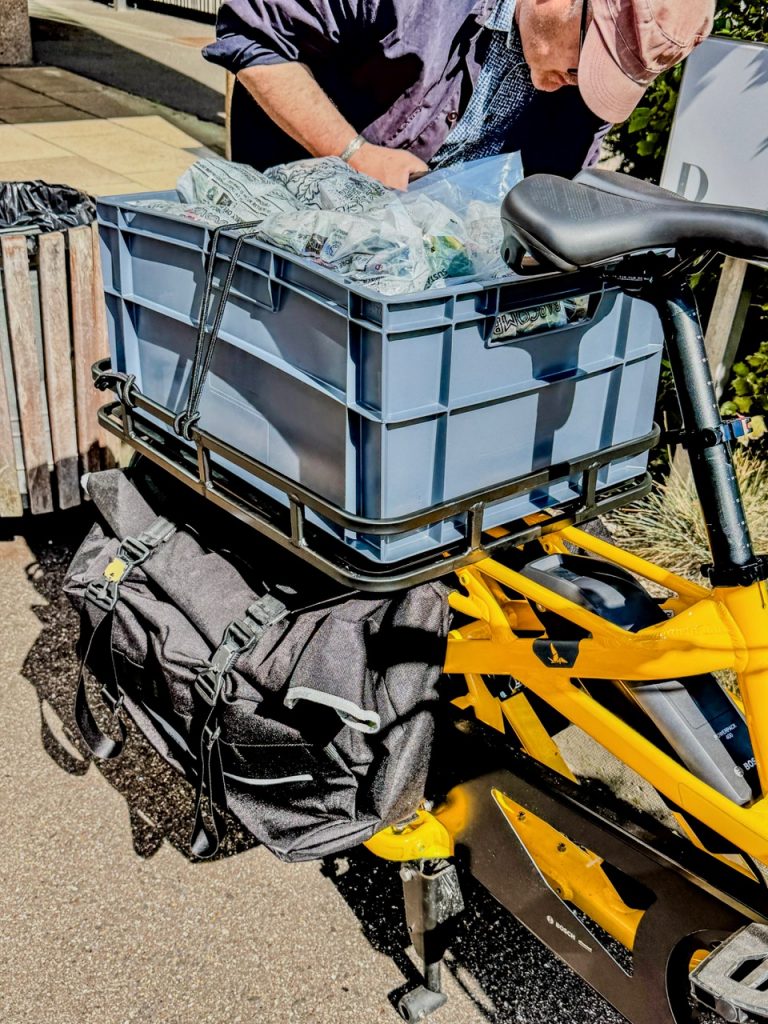
Robert gets ready to roll
Photo by Sam Powell
Get involved
Do get in touch if you’d be interested in volunteering to ride the Tern on some of these deliveries around town. It’s the first community-owned cargo bike in Eastbourne and hopefully it will inspire others to replace cars and vans for some “last-mile” deliveries – as seen in congested towns and cities across Europe.
